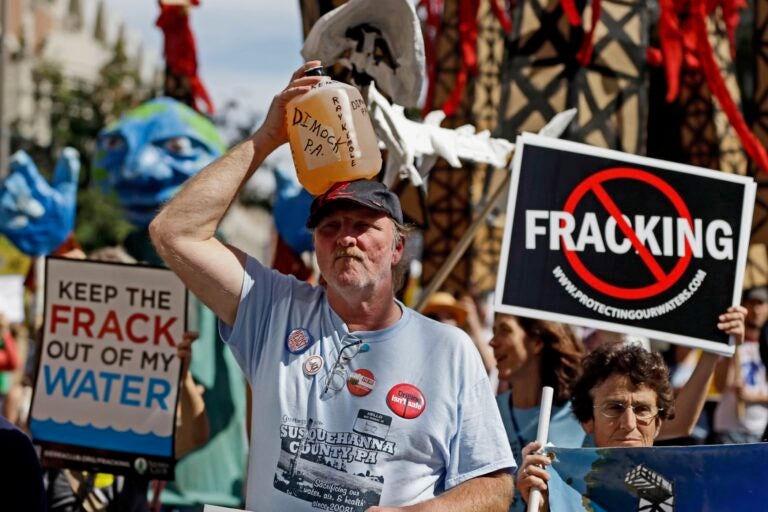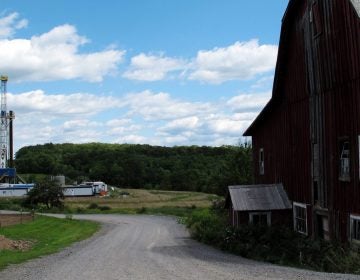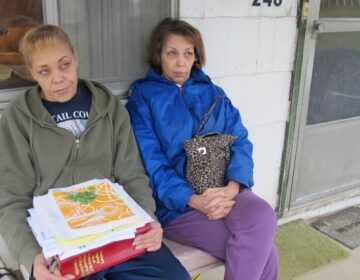Gas driller charged with environmental crimes
Pa.'s Attorney General has filed criminal charges against Cabot Oil and Gas — over 10 years after problems surfaced in Dimock, which became ground-zero in the fracking debate.
Listen 17:56
In this Sept. 20, 2012, file photo, Ray Kemble, of Dimock, Pa., holds a jug of his well water on his head while marching with demonstrators against hydraulic fracturing outside a Marcellus Shale industry conference in Philadelphia. (AP Photo/Matt Rourke, File)
In the early 2000s, some parts of Pennsylvania were struck by a kind of gold rush when energy companies developed a way to tap a massive reserve of natural gas there: a method called fracking. But residents of a small town called Dimock claimed the process tainted their well water, giving it strange colors and tastes, and in some cases, making it flammable
Now, the state attorney general has filed criminal charges against the company that fracked there for environmental crimes. StateImpact Pennsylvania Reporter Susan Phillips explains why charges are coming more than a decade after problems arose — and why it doesn’t necessarily mean more companies will be held accountable.

Hear the whole story on The Why
Interview highlights
On what caused Dimock’s water problems:
A lot of people started complaining, soon after Cabot [Oil and Gas] started drilling their wells, about bad water. But on New Year’s Day in 2009, a resident’s [water well] shed blew up.
What was happening was that methane, which is a colorless, odorless gas (and that’s what they were drilling for; they were drilling for Marcellus Shale gas in that region), it had leaked into the aquifer and then had gotten into people’s water supplies in very high concentrations. And although methane isn’t poisonous, per se, to drink in the water, if it’s in a high enough concentration, anything can make it blow up —like you’d turn on a light switch. If it’s in an enclosed space, it can be highly explosive.
The Department of Environmental Protection did an investigation and found that Cabot’s well construction was what was at fault here. So essentially, those wells became conduits for this gas to come up and it leaked into the aquifer and then got into residential water supplies in that way.
On why the Pa. Attorney General filed criminal charges against Cabot:
The charges stem from the Clean Water Act, basically. In Pennsylvania, it’s called the Clean Streams Act. And it’s important to note that the DEP already issued violations — not criminal violations, but civil violations for the criminal charges that were recently issued. What the grand jury said was Cabot’s actions went beyond what a civil violation warrants: that they willfully had a detrimental effect [not only] on the environment, but also [on] individuals’ health and the public health of the region.
On whether the criminal charges will make a difference:
I think it’s hard to know. I talked to one attorney, and this is somebody who prosecuted environmental crimes in the U.S. Attorney’s Office in the Eastern District. And what he said was, for a lot of these companies, it’s just the cost of doing business. You know, if you can try to get criminal charges against an actual individual in the company, then they’ll stand up and take notice of that. But it’s hard to know how these criminal charges will change the culture of the company or whether or not things will change inside DEP. Will they feel like there’s more pressure on them to hold these companies more accountable?
WHYY is your source for fact-based, in-depth journalism and information. As a nonprofit organization, we rely on financial support from readers like you. Please give today.






